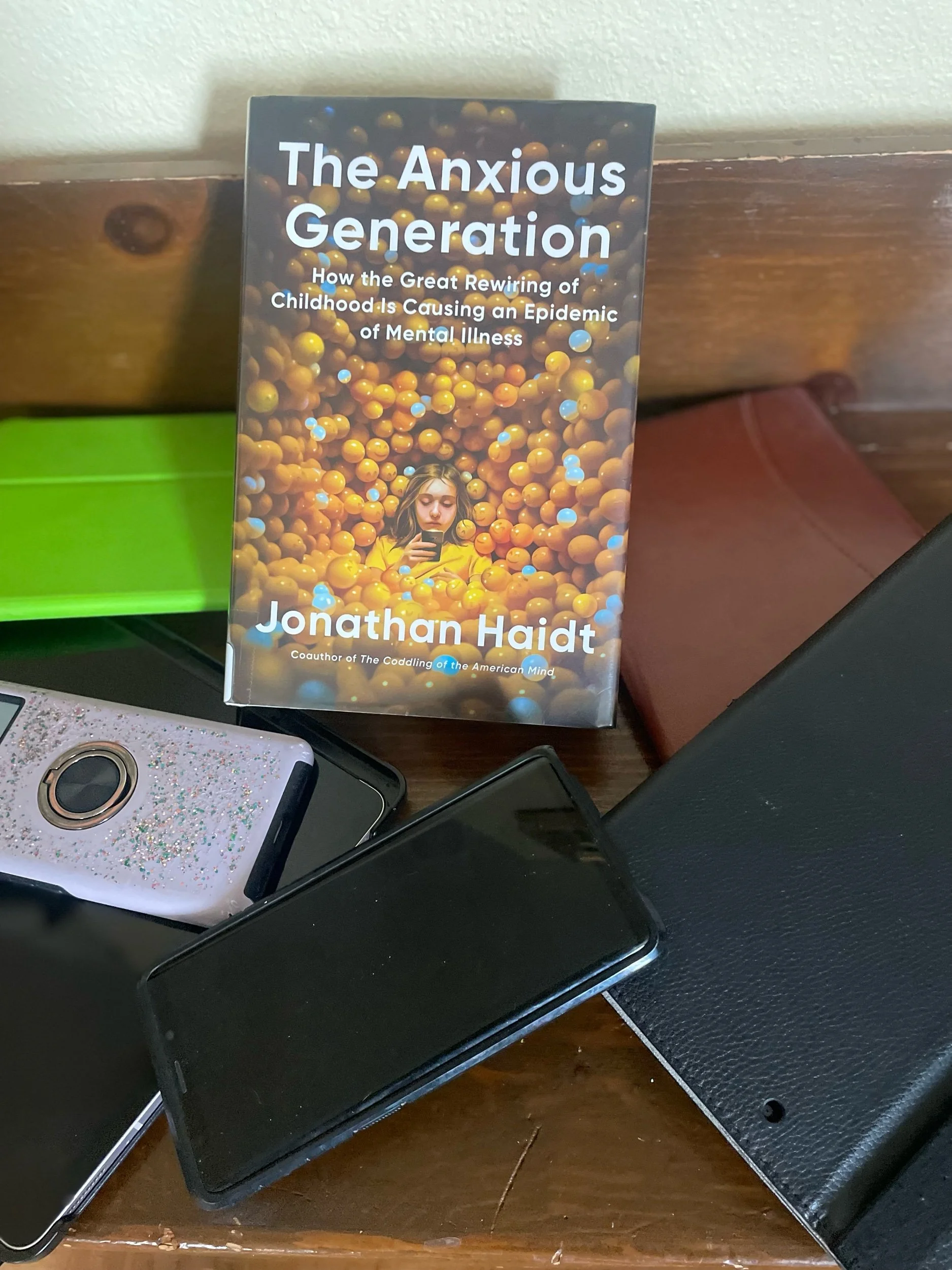All in Reading & Parenting
You don’t need to be a social psychologist to recognize the social crisis of modernity. It seems particularly visible among the generation currently coming-of-age with record high levels of mental illness and increasing instances of “failure to launch.” If you happen to be a social psychologist, however, you might find yourself better equipped to unpack the underlying reasons for the generational shift. In The Anxious Generation: How the Great Rewiring of Childhood is Causing an Epidemic of Mental Illness (2024), Jonathon Haidt, famous for previous books like The Righteous Mind (2012) and The Coddling of the American (2018, see previous review), zooms in on the questions of why Gen Z faces such unique challenges.
Greg Lukianoff and Jonathan Haidt’s The Coddling of the American Mind: How Good Intentions and Bad Ideas are Setting Up a Generation for Failure (2018) came out five years ago and yet its message seems even more relevant today. Published before pandemic fueled parents and youth to even greater levels of anxiety and fear, The Coddling scrutinizes the generational shift on the part of society, schools, and parents that matches the advent of smart phone technology and the rise of social media. Those cultural transformations, the authors argue, led to a generation that equates physical safety with freedom from differing opinions and world views. Their thesis, that American families, universities, and society generally have lost sight of three fundamental truths when it comes to youth; in so doing we have fostered a climate of fragility and safetyism that undermines human resilience and encourages anxiety, us-vs-them culture, and rebrands discomfort and disagreement as unsafe. If their book was a must-read pre-pandemic, it is utterly imperative today.
Unlike most of the myriad books available about parenting, Senior’s All Joy No Fun focuses on what the act of parenting does to modern parents (rather than what various parenting styles do to modern kids). Breaking with the style of many parenting books, in which the author/parenting guru seeks to convince the reader that a specific technique, outlook or turn of phrase will transform their children into cooperative, obedient children, Senior’s book investigates parenthood from all angles. She mixes interesting historical facts (like the creation of “teenager” as a concept) with social science data to create a well-researched and engaging portrait of the modern American parent.
Part memoir (as Gurdon shares her family’s favorite read alouds at various points in her children’s maturity), part science of reading, The Enchanted Hour (2019) proves that reading out loud connects humans in a way that few things can. And in the digital age of information, when we are so often distracted from the ones we hold most dear, that connection is paramount.
Anyone struggling with the massive disconnect between the amount of information today’s parents have available and the amount to which modern kids misbehave will likely find this book worth reading. Parents today face the troubling statistics that the majority of children today mature into addiction or mental illness by the time they reach adulthood and are grasping to find successful ways to raise strong adults. Lewis’s model of taking the time to connect and communicate with our kids effectively, in order to grow their capability (which can only be done by teaching them skills and giving them the independence to practice, fail, and grow) offers an insightful alternative to the antiquated overly-authoritative and the reactionary overly-permissive modes of modern parenting.





